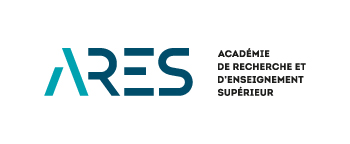01/ Goals
The goal of Specialized master in International and Development Economics (SMIDE) is to train present and future actors of development to be able to devise realistic and original policy reforms and programs based on a sound economic analysis and well adjusted to the social and political context of a country.
At the end of their training, graduates are in a position to:
- design and implement innovative programmes of economics and human development,
- understand and assess the models and methods used by international organizations, foreign governments and consultants in development assistance and international economic relations,
- play an educational role, by clarifying to local decision-makers and to the general public the rationale and usefulness of economic reforms in their local context.
At the end of their training, graduates will also be able to:
- communicate clearly and persuasively both in English (written and oral) as well as in graphical form
- manage a project, integrate and work within a team, and exercise leadership
02/ Programme content
The academic year begins with the "Concepts and Methods" class - a review of the basic concepts in economics and quantitative methods. The programme is then organized around two main themes. The first axis studies poverty and institutional structures required for effective functioning of a market economy in the context of developing countries. The second axis analyzes macroeconomic and trade policies that promote economic growth and macroeconomic stability in a context of poor countries, emphasizing their effects on the well-being of local people.
Each axis comprises five to six learning activities. Each learning activity includes 30 hours. Moreover, the programme comprises a personnel project that each student has to develop under the guidance of a professor and a teaching assistant. The table below summarizes the learning activities of the programme.
| Learning units and subjects | Professor | University | Hours | Credits | Specific credits |
| Refreshing courses | |||||
| Concepts and Methods | UNamur | 75 | (5) | (5) | |
|
J. Jesionek | ||||
|
J. Jesionek | ||||
|
S. Weynants | ||||
|
S. Weynants | ||||
| Personal Project | R. Houssa (coordinator) | UNamur | 60 | 16 | 16 |
| Development and Institutions | |||||
| Development and institutions | G. Cassan | UNamur | 30 | 4 | |
| Economic growth and international development | D. de la Croix | UCLouvain | 30 | 4 | 4 |
| Population, environment and governance | J.-M. Baland | UNamur | 30 | 4 | |
| Poverty and livelihood strategies | C. Guirkinger | UNamur | 30 | 4 | |
| Evaluation of public interventions | C. Guirkinger | UNamur | 30 | 4 | 4 |
| Seminar in Development: International Migration | F. Mariani | UCLouvain | 30 | 4 | 4 |
|
Macroeconomics and trade policies |
|||||
| Fluctuations and development | R. Houssa | UNamur | 30 | 4 | 4 |
| Macro-finance and development | Y. Rychalovska | UNamur | 30 | 4 | 4 |
| Trade and development: Specialization and diversification | A. De Crombrugghe | UNamur | 30 | 4 | 4 |
| Economic integration and trade | L. Trimarchi | UNamur | 30 | 4 | 4 |
| Seminar in development and macro-economic policies | M. Van Overbeke | UCLouvain | 30 | 4 | 4 |
| Total | 60 (+5) | 48 (+5) | |||
03/ Admission
The programme is open to students with a great interest in economic policy making in developing countries and international economic organizations.
- International applicants must have either:
- A university graduate degree obtained after 5 years of university education; or
- A university graduate degree obtained after 4 years of university education and professional experience over a period of at least 2 years.
- Belgian and EU applicants must hold a university degree with 240 ECTS (for details, This email address is being protected from spambots. You need JavaScript enabled to view it.).
For all applicants:
- A sufficient background in economics is required. If the jury assessed an insufficient economic background, the applicant may follow the “Concepts and Methods in Economics” Training. Successful completion of this training results in a certificate. It also grants access to the Specialized Master's program in International and Development Economics (SMIDE).
- In some cases, applicants may be subject to a written test during the admission process.
04/ Additionnal information
Number of scholarships available: 10
Length of the training: one academic year
Teaching language: English
05/ Universities
Universities:
- Université de Namur (UNamur)
- Université catholique de Louvain (UCLouvain)
Programme director:
- Romain Houssa (UNamur)


